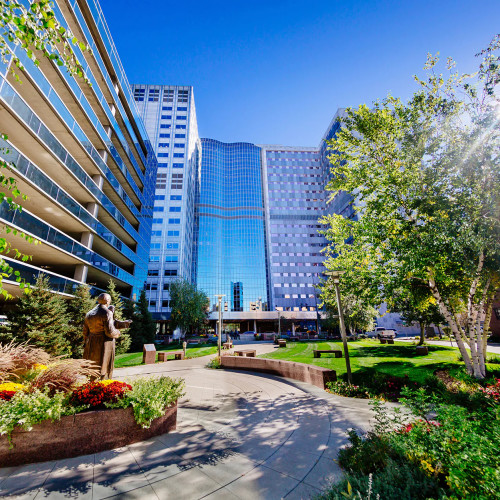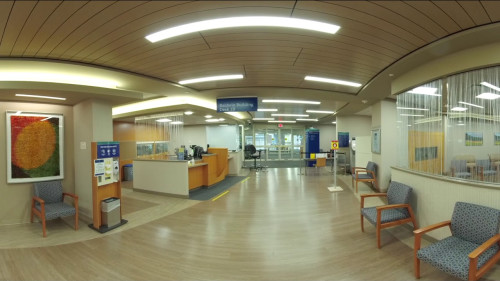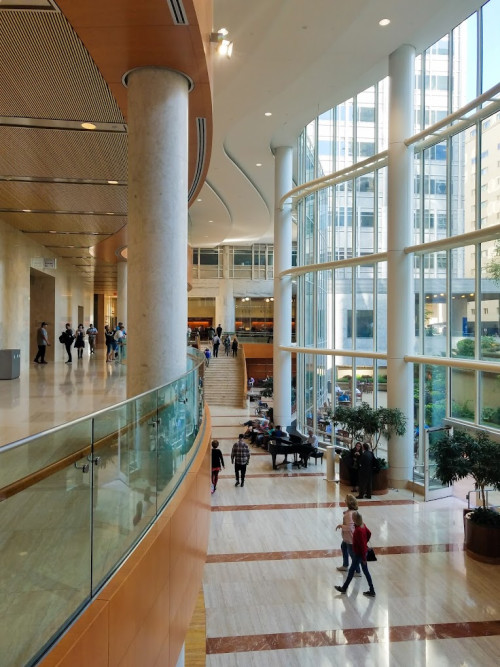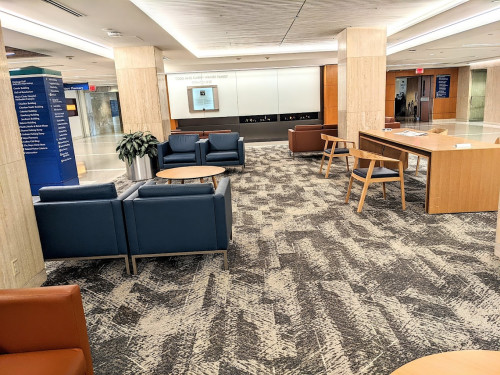






Mayo Clinic in Minnesota
Treatment Focus
This center treats substance use disorders and co-occurring mental health conditions. Your treatment plan addresses each condition at once with personalized, compassionate care for comprehensive healing.
Primary Level of Care
Provides 24/7 medical supervision and intensive treatment in a clinical setting for individuals in crisis or with acute needs, focusing on stabilization and immediate safety
This provider hasn't verified their profile's information. Are you the owner of this center? Claim your listing to better manage your presence on Recovery.com.
Treatment Focus
This center treats substance use disorders and co-occurring mental health conditions. Your treatment plan addresses each condition at once with personalized, compassionate care for comprehensive healing.
Primary Level of Care
Provides 24/7 medical supervision and intensive treatment in a clinical setting for individuals in crisis or with acute needs, focusing on stabilization and immediate safety
Provider's Policy
Mayo Clinic may not be at the highest benefit level or participate in every product offering from the health plans listed below. Please contact the customer service department on the back of your member identification card to confirm that you have in-network access to Mayo Clinic.
Mayo Clinic in Minnesota
Mayo Clinic in Minnesota
About Mayo Clinic in Minnesota
Intensive Addiction Program
Mayo Clinic’s intensive addiction program specializes in residential treatment for drug and alcohol addictions, providing a healing environment for those seeking to overcome substance misuse and co-occurring mental health disorders. Their experienced and knowledgeable staff is made up of licensed mental health professionals and addiction counselors that will create personalized care plans tailored to each individual. The typical day at Mayo Clinic involves a variety of structured groups, using evidence-based and experiential therapies. Treatment may include meditation and mindfulness training, addiction education, individual counseling, coping skills, recreation therapy, and 12-Step support.
Outpatient Addiction Program
The outpatient addiction program at Mayo Clinic is designed for those who are ready to take a step down from residential care or do not require the intensity of inpatient treatment. The outpatient addiction program allows patients to continue to work on their recovery goals while attending 3 hours of group and individual therapy 5 days per week over a 4 week period. Some of the group therapy sessions cover subjects such as addiction education, relapse prevention, processing groups, and psychotherapy sessions. Addiction psychiatrists can oversee the management of medications that may be prescribed for addiction management, and also offers ongoing nursing assessments and lab testing to monitor sobriety. Patients may also participate in Friday family day, incorporating family members into the recovery process. When the outpatient program is done, the treatment team is there to assist individuals with finding the best level of continuing care.
Continuing Care
Mayo Clinic offers several types of programs for patients who have completed primary treatment, allowing individuals to choose which program best meets their needs and providing a continuum of care. Their extended outpatient program is very similar to their outpatient addiction program and is for those who wish to continue with outpatient care after the initial 4 weeks is over. The early recovery program involves meeting 2 times a week for 6 weeks and includes educational, individual, and group therapies for patients who need less frequent care and support implementing the skills and strategies needed for long-term success in recovery. The recovery maintenance program at Mayo is their last stage of their continuum of care services. This program involves an opportunity for weekly group meetings and 1-on-1 sessions. Patients can participate in this maintenance program for up to 6 months, determined by each individual's treatment plan. In addition to the continuing care programs, Mayo Clinic offers addiction services for healthcare professionals, such as doctors, nurses, pharmacists, and dentists seeking treatment for drug and alcohol dependency.
Center Overview
Treatment Focus
This center treats substance use disorders and co-occurring mental health conditions. Your treatment plan addresses each condition at once with personalized, compassionate care for comprehensive healing.
Insurance Accepted
Cash Pay Rates
Estimated Cash Pay Rate
Center pricing can vary based on program and length of stay. Contact the center for more information. Recovery.com strives for price transparency so you can make an informed decision.
Luxury rehab centers offer a unique blend of luxurious amenities and high-quality treatment. From private suites to gourmet dining, personal trainers to spa treatments, these facilities provide a high level of comfort and discretion.

Levels of Care








Your Care Options
Specializations
Intensive Inpatient
The highest level of care, medically managed intensive inpatient services provides 24-hour nursing and physician care.
Who We Treat
Executives
Executive treatment programs typically directly support the needs of people who manage businesses and may provide flexible schedules and office space to allow work during treatment.
Men and Women
Men and women attend treatment for addiction in a co-ed setting, going to therapy groups together to share experiences, struggles, and successes.
Professionals
Busy, high-ranking professionals get the personalized treatment they need with greater accommodations for work, privacy, and outside communication.
Approaches
Spiritual Emphasis
Spirituality connects patients to a higher power and helps strengthen their recovery, hope, and compliance with other treatment modalities.
Evidence-Based
A combination of scientifically rooted therapies and treatments make up evidence-based care, defined by their measured and proven results.
Experiential
Expressive tools and therapies help patients process past situations, learn more about themselves, and find healing through action.
Family Involvement
Providers involve family in the treatment of their loved one through family therapy, visits, or both–because addiction is a family disease.
Holistic
A non-medicinal, wellness-focused approach that aims to align the mind, body, and spirit for deep and lasting healing.
Individual Treatment
Individual care meets the needs of each patient, using personalized treatment to provide them the most relevant care and greatest chance of success.
Personalized Treatment
The specific needs, histories, and conditions of individual patients receive personalized, highly relevant care throughout their recovery journey.
Twelve Step
Incorporating spirituality, community, and responsibility, 12-Step philosophies prioritize the guidance of a Higher Power and a continuation of 12-Step practices.
Therapies
1-on-1 Counseling
Patient and therapist meet 1-on-1 to work through difficult emotions and behavioral challenges in a personal, private setting.
Meditation & Mindfulness
A practiced state of mind that brings patients to the present. It allows them to become fully aware of themselves, their feelings, and the present moment.
Motivational Interviewing and Enhancement Therapy (MET)
This approach is based on idea that motivation to change comes from within. Providers use a conversational framework that may help you commit to recovery.
Recreation Therapy
In recreation therapy, recovery can be joyful. Patients practice social skills and work through emotional triggers by engaging in fun activities.
Relaxation Therapy
Muscle relaxation techniques relax mind and body. They can easily be practiced outside treatment, making it a valuable coping tool for continued recovery.
Spiritual Care
Tending to spiritual health helps treatment become more effective, allowing patients to better cope with their emotions and rebuild their spiritual wellbeing.
Twelve Step Facilitation
12-Step groups offer a framework for addiction recovery. Members commit to a higher power, recognize their issues, and support each other in the healing process.
Substances We Treat
Alcohol
Using alcohol as a coping mechanism, or drinking excessively throughout the week, signals an alcohol use disorder.
Benzodiazepines
Benzodiazepines are prescribed to treat anxiety and sleep issues. They are highly habit forming, and their abuse can cause mood changes and poor judgement.
Co-Occurring Disorders
A person with multiple mental health diagnoses, such as addiction and depression, has co-occurring disorders also called dual diagnosis.
Cocaine
Cocaine is a stimulant with euphoric effects. Agitation, muscle ticks, psychosis, and heart issues are common symptoms of cocaine abuse.
Drug Addiction
Drug addiction is the excessive and repetitive use of substances, despite harmful consequences to a person's life, health, and relationships.
Heroin
Heroin is a highly addictive and illegal opioid. It can cause insomnia, collapsed veins, heart issues, and additional mental health issues.
Methamphetamine
Methamphetamine, or meth, increases energy, agitation, and paranoia. Long-term use can result in severe physical and mental health issues.
Prescription Drugs
It's possible to abuse any drug, even prescribed ones. If you crave a medication, or regularly take it more than directed, you may have an addiction.
Languages
Aftercare
Care Designed for Your Needs
Personal Amenities
Amenities
Special Considerations
What people are saying
Treatment
2.5
Accommodations
2.5
Food & Nutrition
3.5
Value
1.5
Anonymous
Treatment in 2023 • (14 days) • Reviewed 09/13/24
Former Client





